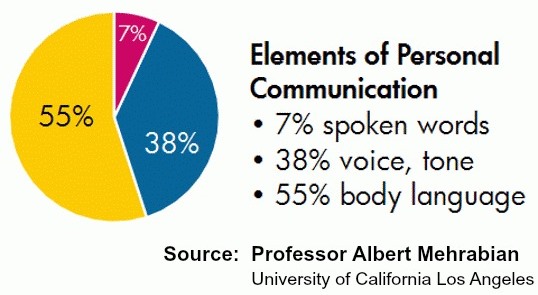 Monday was the first day of school for my daughters – My eldest is now a sophomore in High School and my baby is in her last year of middle school. It is hard to believe how fast time has gone by! It seems like just yesterday my wife and I were bringing them home from the hospital. First day of school is always tough…Well that afternoon my mother-in-law gave them this little gift of vintage candy themed socks. This pair was especially interesting to me…
Monday was the first day of school for my daughters – My eldest is now a sophomore in High School and my baby is in her last year of middle school. It is hard to believe how fast time has gone by! It seems like just yesterday my wife and I were bringing them home from the hospital. First day of school is always tough…Well that afternoon my mother-in-law gave them this little gift of vintage candy themed socks. This pair was especially interesting to me…
Do you remember Mr. Owl? I may be dating myself but I grew up with this question:
“How many licks does it take to get to the center of a tootsie pop?”
It seemed like this commercial stayed on the air forever.
I discovered that it is actually the longest running commercial in American television history. It first appeared in 1970 and depicted a boy on a quest to find the answer to that famous question. Believing that Mr. Owl was the smartest of all, he handed over his Tootsie Pop expecting to get the definitive answer on how many licks it takes to get to the center; but instead the temptation was too great and after just three licks Mr. Owl bites to get to that gooey goodness. I thought this quote was the perfect way to open this “Thought for the Day.”

This reminds me of a conversation that is recorded between Jesus and His disciple Peter in Matthew 18:21-22:
“Then Peter came to Jesus and asked,
‘Lord, how many times shall I forgive my brother when he sins against me? Up to seven times?’
Jesus answered,
‘I tell you not seven times but seventy times seven.’”
Jesus’s response was probably not what Peter was expecting…”seventy times seven” is a whole lot of forgiving! But that was not what He really meant; Jesus’ point really was signaling that there should be no limit to how many times we offer our forgiveness. And just like it’s hard to keep track of the number of licks, it would be very difficult for us to keep up with that many offenses against us. Instead of tallying each offense, we must follow what Ephesians 4:31-32 (NIV) says,
“Get rid of all bitterness, rage and anger, brawling and slander, along with every form of malice.
Be kind and compassionate to one another, forgiving each other, just as in Christ God forgave you.”
I would like to unpack these truths of “What Forgiveness Is and Is Not…”
But first, I would like to share something that God showed me the other morning in my quiet time about his character. Genesis Chapter 3 records the fall of man, when the Serpent (AKA Satan) deceived the Woman to eat the forbidden fruit of the “Tree of Knowledge of Good and Evil,” and how she then gave it to her husband Adam who ate it too. A familiar tale that has been captured in numerous artistic depictions and shared during Sunday Schools everywhere as a cautionary tale of not allowing the enemy to twist God’s Words which will lead to sinning. In Genesis 3:13-20 God rendered the consequences to Adam and Eve’s rebellion, (because there are always consequences to sin – See Galatians 6:7). He first cursed the Serpent, then the Woman and finally Adam. But what amazed me this week was what the next verse says…
“And the LORD God made for Adam and for his wife garments of skins and clothed them.” Genesis 3:21 (ESV)
Now I can’t tell you how many times I have read this story and flew right past this verse but tell me something, have you ever been betrayed and instantly responded by taking care of their needs? But that is exactly what God did, which leads us into our first reality…
I read this quote from Ken Sande that I thought was great!
“Overlook an Offense—Many disputes are so insignificant that they should be resolved by quietly overlooking an offense. Overlooking an offense is a form of forgiveness, and involves a deliberate decision not to talk about it, dwell on it, or let it grow into pent-up bitterness or anger.” From “The Peacemaker: A Biblical Guide to Resolving Personal Conflict,”
And Proverbs 19:11 (NIV1984) says:
“A man’s wisdom gives him patience; it is to his glory to overlook an offense”
If you wait until you “feel like” forgiving, then it will probably never happen. In His historic Sermon on the Mount, Jesus gave us a new model for living in Matthew 5:44-45 (NASB)…

The sun rising on both the evil and the good, and God sends His rain on the righteous and the unrighteous. That is an important truth to put on the sticky side of your brain. And we need to be ready to not only forgive but to love and pray for those who hurt us. No doubt this is a hard command to swallow, which segways us to point #2…
Essential? Does that seem extreme? Not so much when you look at what Jesus said in Matthew 6:14-15 (NLT):
“If you forgive those who sin against you, your heavenly Father will forgive you. But if you refuse to forgive others, your Father will not forgive your sins.”
Forgive or else you will not be forgiven. Pretty cut and dry…It does not get any simpler than that. 2 Chronicles 7:14 (NLT) gives this promise:
“Then if my people who are called by my name will humble themselves and pray and seek my face and turn from their wicked ways, I will hear from heaven and will forgive their sins and restore their land.”
Forgiving someone is not intended about allow yourself to be a doormat to be walked all over but rather it is intended to set you free from bitterness. Unforgiveness can birth bitterness but we don’t have to swallow it. Robert Morris had this to say about…
“We’re all going to taste bitterness in our life, but you have the choice whether you’re going to drink it.”
See Hebrews 12:14-15 also. All of us will experience pain in this life, and if we don’t master bitterness, depression can result. I once heard this great quote that
“Not forgiving someone is like drinking poison and expecting the other person to die.”
And even though I know this is true, I fall victim to this over and over. Growing up, the way I handled being hurt by people was to completely write them off. If you betrayed me, you were dead to me. Holding a grudge was my modus operandi and I am sad to say that I did not just drink bitterness but gulped it in huge amounts. Since 1998 when I gave my heart to Jesus, He has been redeeming my broken and unforgiving heart. I have experience Truth #4 is in my life…
Many people believe just the opposite. They think that forgiveness is for those who inflict pain but it really is for the one who has been crushed. Max Lucado said it best when he penned these poignant words!

What an image and truth! When we refuse to forgive, we are effectively slamming the cell door shut, and locking ourselves in a prison of our own making. Jesus again said in Luke 6:35-36 (ESV):
“But love your enemies, and do good, andlend, expecting nothing in return, and your reward will be great, and you will be sons of the Most High, for he is kind to the ungrateful and the evil. Be merciful, even as your Father is merciful.”
“Be merciful, even as your Father is merciful” which leads us into our fifth and final truth…
Dictionary.com has this definition of Act: “a deed; performance,” whereas an Attitude is a…
“manner, disposition, feeling, position, etc., with regard to a person or thing; tendency or orientation, especially of the mind.”
Forgiveness is not “a one and done.” It is a continual, purposeful mindset that is a choice which is essential and a gift for the offended. I love what Martin Luther King Jr. said that makes this point perfectly!
Jesus modeled this in his final moments as recorded in Luke 23:34 (ESV),
“And Jesus said, ‘Father, forgive them, for they know not what they do.’ And they cast lots to divide his garments.”
After being disrespected, spat upon, slapped, beaten, flogged and nailed to a Roman Cross, Jesus looks up to heaven to intercede on our behalf! What an attitude of forgiveness! William Blake said:
“The Glory of Christianity is to Conquer By Forgiveness,”
So the question is will you “Conquer By Forgiveness”…will you forgive others as God has forgiven and loved you? Think about it, Adam rebelled against God, sin entered the world and we were separated from Him forever. To resolve this, God sent His Son Jesus as the payment for my sin so that all we need to do is accept the sacrifice for the forgiveness of the sin that came into the world. Romans 5:18-19 (NLT) says,
“Yes, Adam’s one sin brings condemnation for everyone, but Christ’s one act of righteousness brings a right relationship with God and new life for everyone. Because one person disobeyed God, many became sinners. But because one other person obeyed God, many will be made righteous.”
One man ushered sin into the world but what is more important is that one man, Jesus Christ has destroyed the power of sin over our lives if we make the right choice. One of my favorite quotes from John Wooden is:
“There is a choice that you have to make, in everything you do. So keep in the mind that in the end, the choice you make, makes you.”
Remember, forgiveness is not a Tootsie Pop. Don’t even try to count the number of times you have forgiven someone. In God’s reality, there is no number of licks you will take that you will ever be justified to stop forgiving. So now the choice is yours. What will you do with this information? You know what God would do, He will always forgive a repent person. And in return, He expects us to show others the same mercy you have received. Will you do the same? Because in the end, the choice you make, makes you!
If you are interested to read more about Forgiveness, check out this two part series of posts called:
★ Re|Engage – Forgiveness In Action ★

























 “Ignoring conflict often only makes matters worse and the issue will likely resurface again later.”
“Ignoring conflict often only makes matters worse and the issue will likely resurface again later.”






 Real Love has no Plan ‘B’…So how would that look in your marriage if you took that same mindset? Lesson 7 gave this advice…
Real Love has no Plan ‘B’…So how would that look in your marriage if you took that same mindset? Lesson 7 gave this advice…




